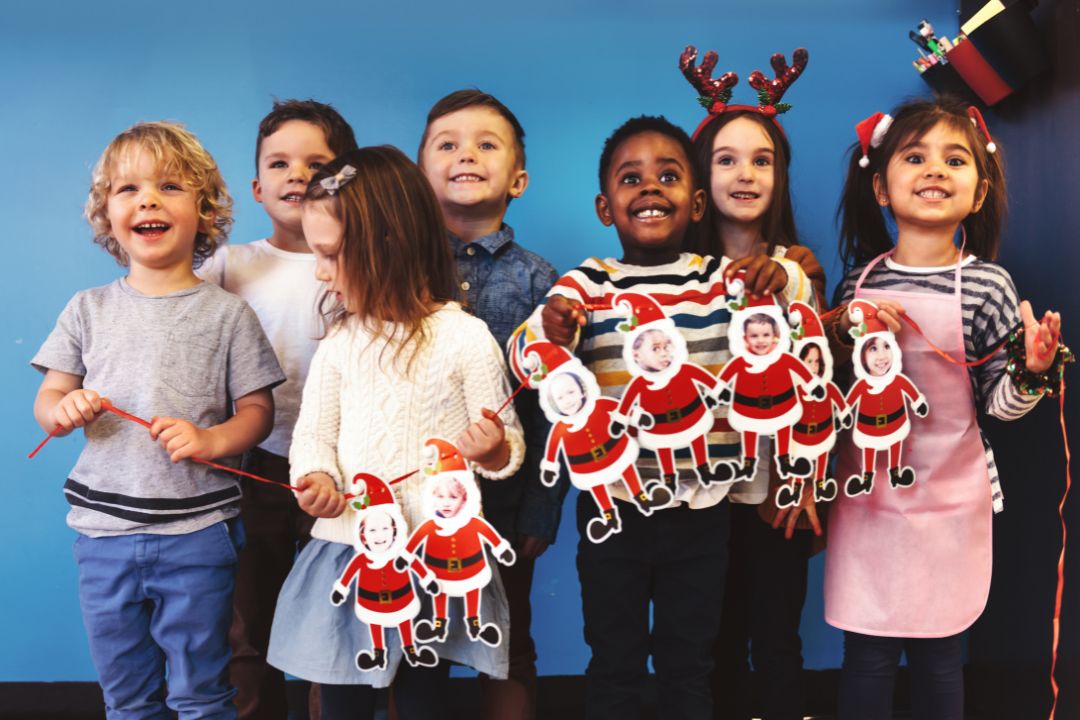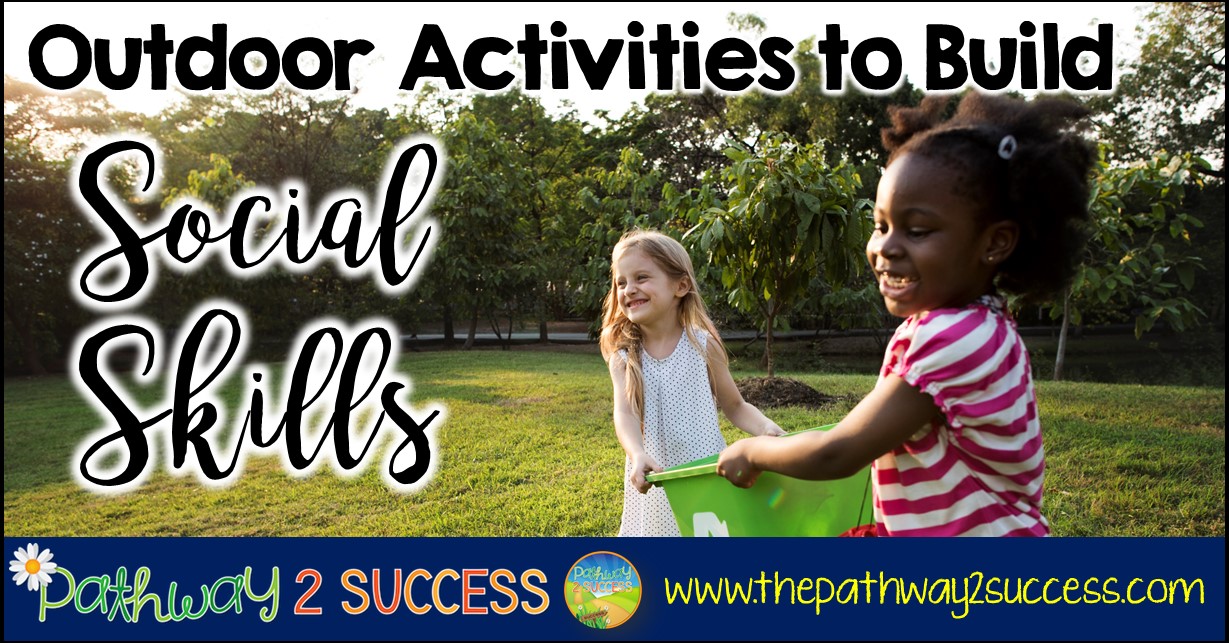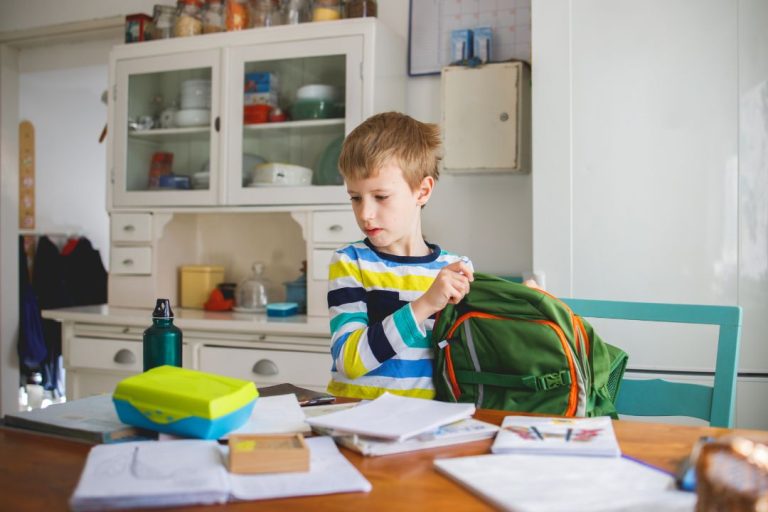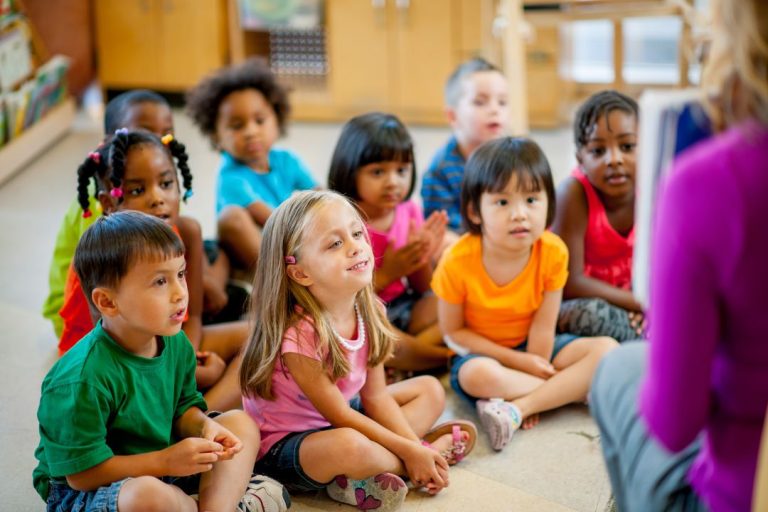Building Social Skills in Preschool: Activities And Tips

Building social skills in preschool requires engaging activities and consistent reinforcement of positive behaviors. By incorporating group play, role-playing, and turn-taking exercises, children can develop important social competencies that will benefit them through their formative years and beyond.
Preschool is a crucial time for children to start developing their social skills and learning how to interact with others. Through various activities and tips, educators and parents can play a significant role in fostering the growth of these fundamental abilities.
This comprehensive guide will explore effective strategies and engaging activities that can help preschoolers to develop essential social skills. By incorporating these tips and activities into daily routines, children can enhance their social skills in a fun and interactive manner, setting a strong foundation for their future interactions and relationships.
Importance Of Social Skills In Preschool
Building social skills in preschool is crucial as it sets the foundation for a child’s future interactions and relationships. These early years are a pivotal time for children to develop essential social skills that will support their emotional, cognitive, and academic growth throughout their lives. By fostering positive social development, educators and parents play a vital role in shaping a child’s ability to connect with others, solve problems, and navigate social dynamics. Understanding the significance of social skills in preschool can help create an environment conducive to holistic growth and development.
Understand The Role Of Social Development In Early Childhood Education
Early childhood education lays the groundwork for a child’s overall development, with a particular focus on social and emotional growth. During this crucial stage, children learn to communicate, cooperate, and resolve conflicts through their interactions with peers and educators. By understanding the role of social development in early childhood education, teachers and caregivers can create supportive environments that nurture healthy social behaviors.
Explore The Impact Of Positive Social Interactions On Preschoolers
Positive social interactions in the preschool years foster a sense of belonging, empathy, and self-confidence. These experiences contribute to a child’s emotional well-being and lay the groundwork for healthy relationships in the future. Exploring the impact of positive social interactions on preschoolers helps educators recognize the importance of creating inclusive and supportive learning environments that foster meaningful connections among children.
Examine How Social Skills Influence Academic Success
Social skills play a pivotal role in determining a child’s academic success. Developing strong social skills enhances a child’s ability to collaborate, communicate effectively, and engage in peer learning. By examining how social skills influence academic success, educators can emphasize the integration of social-emotional learning into the preschool curriculum, thereby ensuring that children are equipped with the interpersonal skills necessary for their educational journey.
Recognizing Social Milestones
Identify Typical Social Milestones For Preschool-aged Children
Preschoolers go through significant social developmental milestones that assist in shaping their interpersonal skills. These may include developing the ability to share, take turns, engage in cooperative play, and show empathy towards others. Additionally, preschoolers become more aware of their emotions and begin to express themselves verbally. Identifying these social milestones is crucial for understanding the child’s progress and holistic development.
Tips For Monitoring Progress And Spotting Delays
Monitoring a preschooler’s social progress involves observing their interactions with peers and adults, as well as recognizing the development of collaborative behaviors. Signs of delay may include difficulty in making friends, parallel play without interaction, or challenges in understanding others’ emotions. Early detection of social delays can lead to effective intervention and support.
How Caregivers Can Support Social Development Milestones
Supporting a preschooler’s social milestones involves providing them with ample opportunities for social interaction, encouraging positive behavior, and teaching them problem-solving skills. Caregivers can foster social development by arranging playdates, modeling social skills, and addressing any behavioral or communication challenges promptly.
By being interactive and supportive, parents and educators can help preschoolers develop essential social skills that will benefit them in both their academic and personal lives. Understanding and nurturing social milestones are fundamental in setting the stage for healthy social development in the formative years.
Building Social Skills: Preschool Activities
When it comes to building social skills in preschoolers, engaging in activities that promote teamwork, empathy, and communication is essential. Here are some effective activities and tips that can help lay a strong foundation for the development of valuable social skills in young children.
Encouraging Teamwork Through Group Games And Projects
Engaging in group games and projects is an excellent way to encourage teamwork among preschoolers. Team-building exercises, such as cooperative games and collaborative art projects, foster a sense of unity and shared responsibility. These activities promote communication, cooperation, and the ability to work harmoniously with peers towards a common goal.
Role-playing Scenarios To Foster Empathy And Cooperation
Role-playing scenarios offer preschoolers the opportunity to step into the shoes of others, fostering empathy and cooperation. Through dramatic play sessions, children can explore different social roles, understand the perspectives of their peers, and practice strategies for conflict resolution, all of which contribute to the development of strong social skills.
Structured Playtimes That Facilitate Sharing And Communication
Structured playtimes provide an ideal setting for children to learn the significance of sharing and effective communication. By incorporating organized play activities, such as sharing circles and turn-taking games, children can develop an understanding of the importance of sharing toys, ideas, and attention, while also honing their communication skills in a supportive environment.
Tips For Parents And Educators
When it comes to building social skills in preschool-aged children, the role of parents and educators is pivotal. By using effective strategies, creating an inclusive environment, and organizing social interactions, they can play an essential role in nurturing the social development of young children. Below are some valuable tips for parents and educators to foster positive social interactions and enhance the social skills of preschoolers.
Strategies For Modeling Positive Social Behavior
Modeling positive social behavior is one of the most effective ways to teach preschoolers about interaction and kindness. By demonstrating respectful communication, empathy, and cooperation, parents and educators can provide a blueprint for children to follow. It’s important to use positive language and encourage turn-taking during conversations to establish good communication skills.
Importance Of Creating An Inclusive Environment
Creating an inclusive environment in the preschool setting is crucial for fostering social skills. By promoting respect for diversity and embracing individual differences, children can learn to appreciate and accept others. Educators can organize multicultural activities and introduce diverse resources to teach children about different cultures and backgrounds. By doing so, they can lay the foundation for a tolerant and inclusive environment.
Setting Up Playdates And Social Interactions
Organizing playdates and structured social interactions is an effective way to help preschoolers practice their social skills and learn to cooperate with others. Parents and educators can facilitate group activities that encourage sharing, collaboration, and teamwork. By organizing engaging activities, children can develop social confidence and build positive relationships with their peers.
Addressing Challenges In Socialization
When it comes to building social skills in preschoolers, addressing challenges in socialization is crucial for their overall development. By recognizing and tackling these challenges early on, children can build a strong foundation for positive social interactions and relationships. Here are some strategies to address common challenges in socialization:
Managing Conflicts And Teaching Problem-solving Skills
Conflict resolution is an essential aspect of social skill development. Teaching preschoolers how to handle conflicts constructively can greatly impact their social interactions. Engaging children in activities that promote teamwork, sharing, and compromise can help them understand the importance of resolving conflicts peacefully. Role-playing scenarios and guided discussions are effective methods for teaching problem-solving skills playfully and engagingly.
Tailoring Activities For Different Social Skill Levels
Preschoolers have varying levels of social development, and it’s important to tailor activities to meet their individual needs. For children who are more advanced in their social skills, group activities that encourage leadership and cooperation can be beneficial. On the other hand, shy or introverted children may benefit from smaller, more intimate social settings where they can gradually build their confidence. By customizing activities to cater to different social skill levels, every child can feel included and supported in their social growth.
Overcoming Shyness And Social Anxiety In Young Children
For some preschoolers, shyness and social anxiety can present significant obstacles in their socialization journey. Creating a nurturing and non-judgmental environment is essential for helping these children overcome their fears and anxieties. Engaging in activities that promote self-expression, such as art and storytelling, can help shy children gradually come out of their shells. Encouraging positive reinforcement and providing opportunities for small, low-pressure social interactions can also aid in building their confidence.
Fine-tuning Social Skills With Feedback
Building social skills in preschool is crucial for the overall development of children. One of the effective ways to fine-tune social skills is by providing feedback. Feedback, be it positive reinforcement, constructive criticism, or celebrating successes, plays a pivotal role in shaping children’s behavior and interactions with others.
Using Positive Reinforcement To Encourage Pro-social Behavior
Positive reinforcement is an invaluable tool for encouraging children to exhibit pro-social behavior. By offering praise and acknowledgment when children engage in positive social interactions, such as sharing, taking turns, or showing empathy, they are motivated to continue these behaviors. This can be reinforced through verbal encouragement, smiles, or simple gestures, allowing children to feel valued and recognized for their efforts.
Constructive Criticism Techniques Without Discouraging Children
When providing constructive criticism to preschoolers, it’s essential to do so in a manner that promotes learning without discouraging them. Utmost care should be taken to ensure that feedback is gentle and supportive, focusing on the behavior rather than the child. By using positive language and offering suggestions for improvement, children can better understand areas that require attention while maintaining their confidence and self-esteem.
Celebrating Social Successes To Build Confidence And Competency
Celebrating social successes is a powerful way to build children’s confidence and competency in social situations. Whether it’s through verbal praise, high-fives, or reward systems, recognizing and celebrating instances of positive social interaction reinforces these behaviors. By doing so, children learn to associate such behaviors with positive outcomes, thus increasing the likelihood of their repetition in the future.

Frequently Asked Questions Of Building Social Skills In Preschool: Activities And Tips
How Can I Help My Preschooler Develop Social Skills?
Encourage interaction with other children through playdates, group activities, and cooperative games. Model polite and respectful behavior and provide opportunities for your child to practice taking turns, sharing, and communicating effectively.
What Are Some Fun Activities To Improve Preschoolers’ Social Skills?
Engage in pretend play, where children can practice taking on different roles and cooperating with peers. Use storytelling to promote empathy and perspective-taking. Arts and crafts activities can also encourage teamwork and communication among preschoolers.
How Important Are Social Skills For Preschoolers’ Overall Development?
Social skills are crucial for preschoolers’ emotional, cognitive, and behavioral development. Developing social skills can lead to improved self-esteem, better relationships, and success in school and beyond. It helps children understand and regulate their emotions and adapt to different social situations.
Conclusion
Cultivating social skills in preschoolers is key to their overall development. By engaging in structured activities that promote teamwork, communication, and empathy, children can lay a strong foundation for future interactions. Implementing simple strategies, such as role-playing and cooperative games, can make learning social skills enjoyable and effective.
Encouraging positive social interactions in the early years will benefit children throughout their lives.

With over 20 years of experience in early childhood education, Jane brings a wealth of knowledge to Classroom Journey. She specializes in play-based learning and has a passion for inclusive education.






